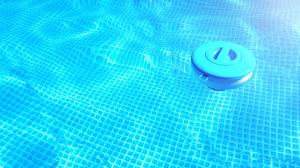Pool Maintenance Insights: The Importance of Proper Draining Schedules
Over time, water chemistry drifts, and draining becomes the reset button that keeps everything working properly. ”
METAIRIE, LA, UNITED STATES, August 25, 2025 /EINPresswire.com/ -- Kingfish Pools Inc. in Metairie is raising awareness about the importance of pool draining schedules and why periodic water replacement is essential for safe, efficient, and long-lasting pool care. While often overlooked, proper draining practices prevent structural issues, extend equipment life, and ensure water remains balanced and healthy.— William Gunzburg
Why Pool Draining Matters
Pools are closed systems. Over time, water accumulates minerals, chemicals, and organic material that cannot be completely removed through filtration or chemical treatment. Even with consistent upkeep, dissolved solids build up, slowly changing the chemistry of the water.
When water becomes oversaturated with calcium, salts, or stabilizers, chemical treatments lose effectiveness. The result may be cloudy water, staining, scaling, or damage to pool surfaces and equipment. Draining and refilling on a proper schedule restores balance, reduces strain on filtration systems, and creates a fresh baseline for ongoing maintenance.
Recommended Frequency
How often a pool should be drained depends on several factors:
Climate: Pools in hotter, more humid regions such as southern Louisiana typically require more frequent attention due to longer swimming seasons and heavier chemical use.
Usage: Higher swimmer loads introduce more oils, sunscreen, and organic material into the water, accelerating buildup.
Pool Type: Concrete, plaster, fiberglass, and vinyl-lined pools respond differently to water chemistry, influencing draining needs.
Chemical Balance: When stabilizer or total dissolved solids (TDS) levels rise above recommended ranges, draining becomes necessary.
On average, many pools benefit from partial or complete draining every three to five years, though high-use or high-temperature environments may shorten that interval.
Risks of Neglect
Failure to maintain proper draining schedules can cause multiple issues:
Surface Damage: Excess calcium leads to scaling, which roughens surfaces and reduces visual appeal.
Equipment Stress: Pumps, filters, and heaters work harder in water with high dissolved solids, shortening lifespan.
Water Quality: Overloaded water chemistry leads to ineffective sanitization, increasing the potential for algae and bacteria growth.
Structural Concerns: In some cases, prolonged neglect can damage plaster or compromise liners.
Proper draining helps avoid these risks, making it a critical component of responsible pool care.
Safety Considerations
Draining a pool must be approached carefully. Improper methods can damage the structure or surrounding property. In areas with high groundwater levels, draining too quickly or completely can cause hydrostatic pressure to push against the pool shell, potentially leading to cracks or even structural shifting.
Professional evaluation ensures water is removed at the correct rate and under the right conditions, protecting both the pool and the environment. Additionally, safe disposal of drained water prevents chemical runoff into storm drains or landscaping.
A Local Perspective
William Gunzburg, owner of Kingfish Pools Inc. in Metairie, has managed pool care in Louisiana’s unique climate for years and emphasized the importance of scheduled draining:
"Pools are more than places to cool off in the summer—they’re complex systems that need balance. Over time, water chemistry drifts, and draining becomes the reset button that keeps everything working properly. Ignoring it may not cause problems overnight, but eventually it catches up in the form of damage or higher maintenance costs."
Environmental Factors in Louisiana
In southern Louisiana, extended swimming seasons, warm temperatures, and frequent storms all affect pool chemistry. Heavy rainfall dilutes water but also introduces contaminants that alter balance. Meanwhile, long stretches of high heat accelerate evaporation, concentrating minerals and chemicals.
Because of these factors, local pools often require closer monitoring than those in cooler or drier climates. Scheduled draining not only helps preserve water clarity and safety but also reduces unexpected repair needs caused by chemical imbalance.
Extending Pool Longevity
Draining is not just about water quality; it also protects the structure itself. Pool surfaces, whether plaster or vinyl, last longer when not subjected to unbalanced water. Equipment such as heaters and pumps also benefit from reduced exposure to mineral-heavy or chemically saturated water.
In this way, draining becomes part of a broader strategy for long-term pool ownership. Regular upkeep, combined with occasional water replacement, maximizes lifespan and reduces the likelihood of costly overhauls.
Conclusion
Draining a pool may not be the most glamorous aspect of maintenance, but it is one of the most important. By resetting water chemistry, protecting surfaces, and reducing stress on equipment, scheduled draining safeguards both the pool and the investment behind it.
In regions such as Metairie and throughout southern Louisiana, environmental factors make professional guidance especially important. By understanding when and how to properly drain, pool owners can maintain safe, balanced, and long-lasting swimming environments.
Kingfish Pools Inc. continues to share expertise on these essential practices, reinforcing the role of proper water management in overall pool care.
Morgan Thomas
Rhino Digital, LLC
+1 504-875-5036
email us here
Visit us on social media:
Facebook
Legal Disclaimer:
EIN Presswire provides this news content "as is" without warranty of any kind. We do not accept any responsibility or liability for the accuracy, content, images, videos, licenses, completeness, legality, or reliability of the information contained in this article. If you have any complaints or copyright issues related to this article, kindly contact the author above.


